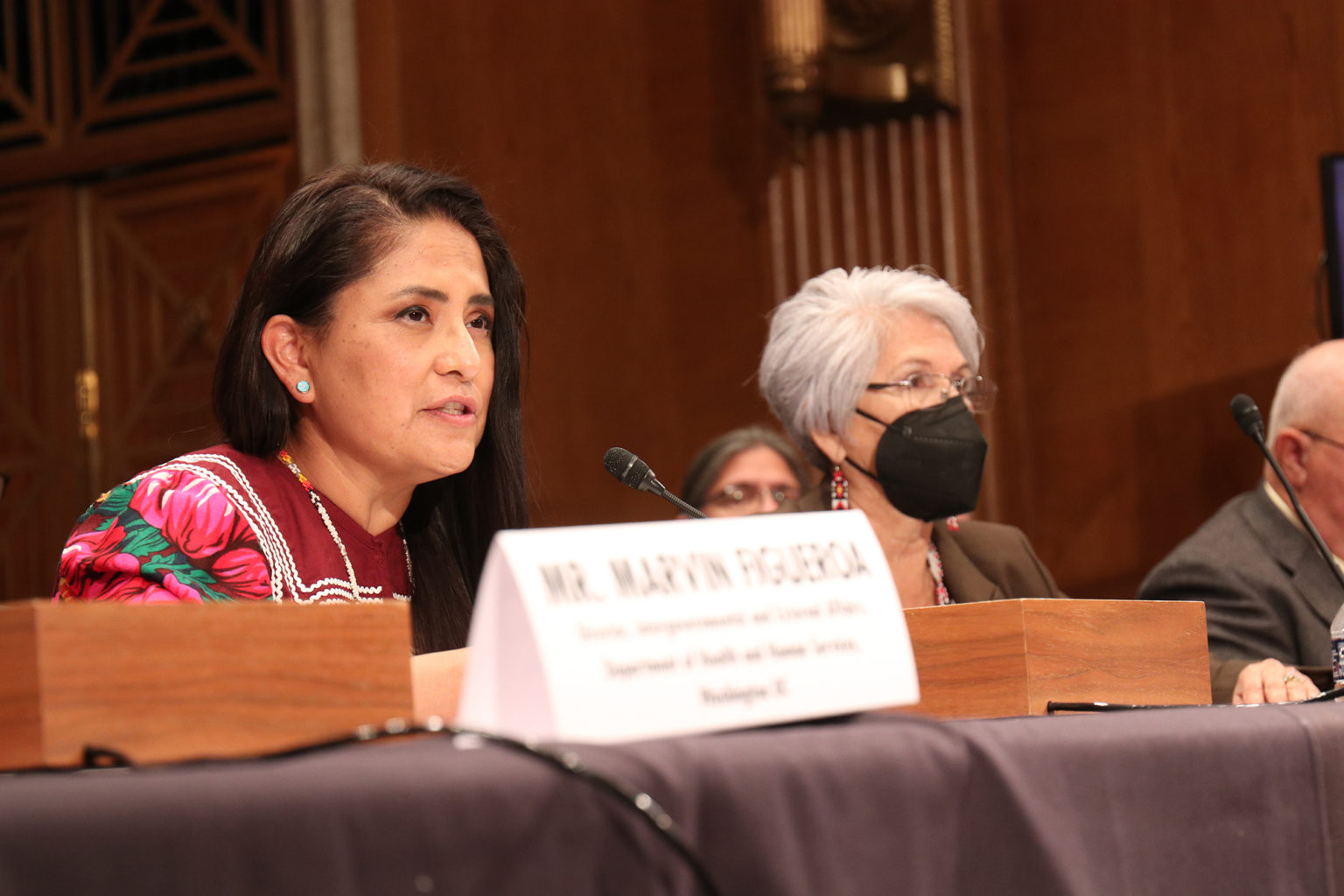White Mountain Apache Chairwoman Gwnedena Lee-Gatewood, left, told the Senate Indian Affairs Committee that the federal government needs to fulfill its promise to fund a rural water system to replace failing wells on the reservation. A trio of bills affecting water rights and infrastructure for Arizona tribes took a step closer to becoming law Wednesday, a move one official said his tribe has been waiting for since being forced onto the reservation. Photo by Reagan Priest || Cronkite News
By Ryan Knappenberger || Cronkite News
A trio of bills affecting water rights and infrastructure for Arizona tribes took a step closer to becoming law Wednesday, a move one official said his tribe has been waiting for since being forced onto the reservation.
The Senate Indian Affairs Committee, without debate, approved bills granting water rights to the Hualapai, letting the Colorado River Indian Tribes lease their water, and adding funding and extending the deadline for review of a water system for the White Mountain Apache.
Tribal leaders welcomed the votes, which they called the culmination of hard-fought struggles by their tribes.
“We’ve always had to fight for our right to water, we’ve always had to fight to prove that we are deserving of those resources and that we deserve to be treated fairly,” said Charlie Vaughn Sr., former chairman of the Hualapai Tribe.
“We’ve always had to fight for our rights, regardless of what the issue is.”
But Wednesday’s vote may not be the end of that fight. With just six weeks left in the current Congress, there is little chance the bills can win approval from the full Senate and then from the House, meaning tribes may have to start over again in 2023.
“It causes concern for me. I’m hoping we have enough to keep moving and it doesn’t get stalled,” Vaughn said.
The Senate hearing comes as the West suffers through a 22-year-long drought that has led to historically low water levels in Lake Mead. The Colorado River supplies drinking water to as many as 40 million people, according to the Bureau of Reclamation, which this year announced steep cuts in the amount of water allocated from Lake Mead.
Those cuts, which take effect next year, would hit Arizona hardest of the “lower basin” states in the Colorado watershed. Starting in 2023, Arizona will lose 592,000 acre-feet of water from the Colorado River, compared to 104,000 acre-feet for Mexico, 25,000 for Nevada and none for California.
Some fear the new reductions could mean that tribes will lose water rights they have been fighting to get for years.
A report by the University on Montana’s Water and Tribes Initiative said 11 tribes in Arizona have unresolved claims to water from the Colorado River.
Some, like the Hualapai, are waiting on congressional action that could grant them water rights, while others are not even that far along.












